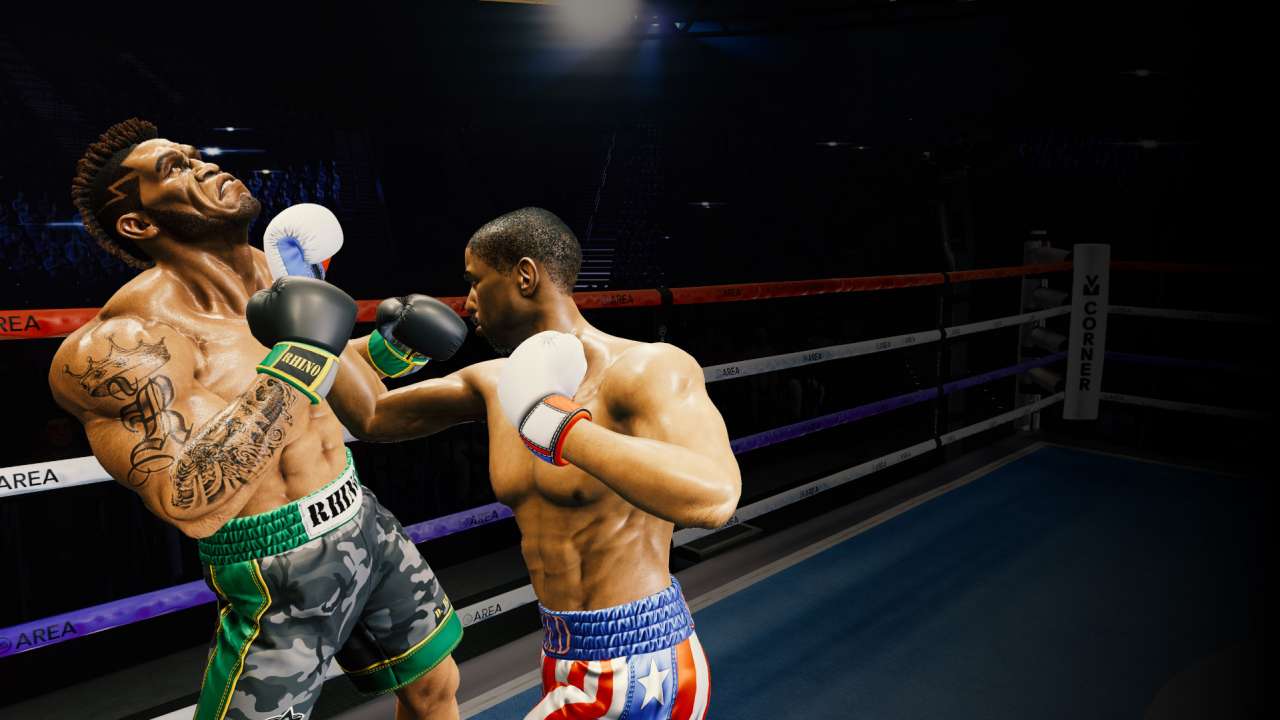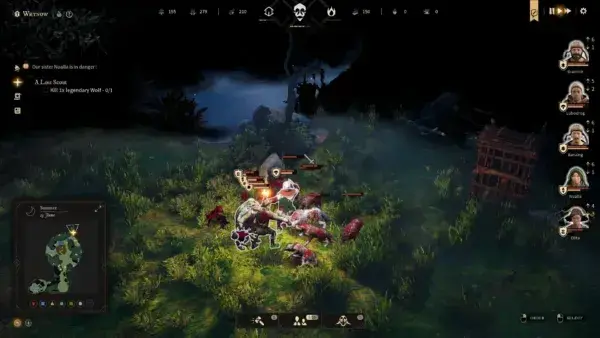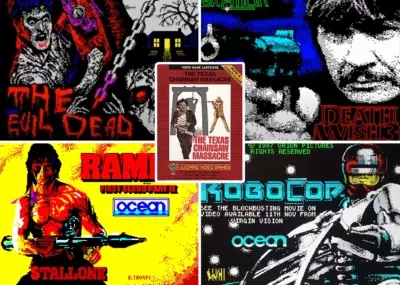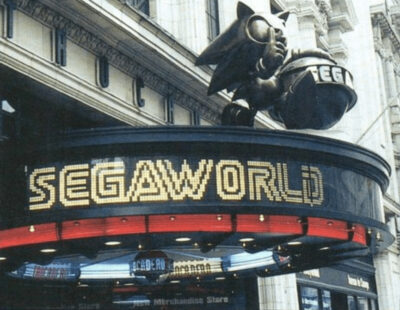
While there’s definitely an upside to making a game based on a highly revered film, TV, or comic book, for the longest time, development teams working on licensed video games did so knowing that it came with a certain stigma attached.
Known in industry circles for having much tighter production schedules and deadlines, games based on recognisable properties have long been synonymous with poor quality and a broad streak of cynicism.
Of course, not all licensed games are bad. Rocksteady’s Arkham series gave players the thrill of being Batman; 2014’s Alien: Isolation recreated the aesthetic of Ridley Scott’s 1979 movie in painstaking (and chilling) detail, and the recently released Fallen Order has been praised in some quarters as the best Star Wars game from EA to date.
But for every one of these home runs, there’s a dud like the assorted Iron Man tie-ins from 2008, or the widely derided Aliens: Colonial Marines, released in 2013. Whether they’re good, bad, or indifferent, triple-A licensed games will always exist in some capacity. But as we enter an era of gaming where more and more creatives are breaking away to form smaller studios, we’re now seeing what can happen when tiny teams get to work on some of the most famous IPs in the world.
One such team is Illfonic, a Colorado-based developer currently working on the PlayStation exclusive Predator: Hunting Grounds, due out later this year. Before that, though, Illfonic first set Twitch streams alight with the asymmetrical action of 2017’s Friday the 13th: The Game, which saw a team of player-controlled camp counsellors fend off the formidable Jason Voorhees.
Beyond the B-movie
When Friday the 13th was in development, there were just 50 artists and designers working on it. But the advantages of having a comparatively small team like Illfonic work on such a colossal IP became instantly clear for its CEO, Charles Brungardt.
“We’re small enough that talking as a group and getting feedback or ideas from each other doesn’t get lost,” he explains. “We can also move pretty fast when it comes to trying out ideas. We don’t get lost in a ton of red tape, and it allows key stakeholders to have a direct relationship with the IP holders to make the game as true to the licence as possible.”
Illfonic’s Friday the 13th was by no means the first attempt at translating the slasher franchise into a game, but the studio’s seven-on-one multiplayer approach made perfect sense for the franchise, and showcased an inspired understanding of the original property.
Indeed, the asymmetrical setup proved so successful the first time around that it made sense for the team to see if lightning could strike twice with their next game, Predator: Hunting Grounds. “Asymmetric games can break a lot of rules in game design, but making it all work together is rewarding,” Brungardt says.
“They excite us because of the fun, but also the challenge it presents by putting two different games together and watching the chaos that can result when people play it. It’s also different than the norm of the industry.”

Friday the 13th: The Game translates Jason’s impressive killing capabilities as a hunting vision useful for chasing the seven other camp counsellors.
New technologies
Based in Los Angeles, Survios is another studio that’s attempted to do new things with a movie licence. In 2018, it took its experience of making virtual reality games like Raw Data and Sprint Vector, and applied them to the evergreen Rocky franchise with the first-person boxing title, Creed: Rise to Glory.
Allowing players to take on the role of boxer Adonis Creed, the game certainly has a layer of Hollywood gloss to it, but Survios co-founder James Iliff points out that the game wouldn’t have been made had the Rocky property not been right for what the studio wanted to make.
In terms of the team’s approach in selecting an IP, “we focus first and foremost about building a great game,” Iliff explains. “We then look at IP that also makes sense for gameplay in an abstract sense, and then sometimes we put those two things together.
“There are undoubtedly movies and shows that are more naturally conducive to the interactive medium than others. A movie IP most certainly has to make sense in the imagination as connecting with some kind of core mechanic, whether that be action, puzzles, stealth, racing, or some other unique mash-up.”
Comprising around 50 employees, Survios is another small studio – at least in comparison to MGM, the Hollywood behemoth that owns the Rocky licence. But unlike the David-and-Goliath scenarios that regularly play out in the Rocky movies, the relationship between the two studios was far from combative, says Iliff.

Taking place between the first two Creed films, Creed: Rise to Glory allowed players to immerse themselves in the ring as Adonis Creed.
“We loved working with MGM,” he enthuses. “It’s been fascinating to craft an experience that made sense in VR; we got to try new things, like giving you a ghost avatar with the phantom melee system, allowing you to get knocked out of your body, and other mechanics to simulate the intensity of a fight.”
Size matters not
Two years before the aforementioned Aliens: Colonial Marines left players shuddering for all the wrong reasons in 2013, a smaller game based on the same licence – Aliens: Infestation – emerged on the Nintendo DS.
Making the most of its handheld platform’s limitations, Infestation was a tense and focused 2D platformer, with its exploration, shooting, and tidy pixel graphics underpinned by a devious mechanic: once a member of the player’s party was dead, they were gone for good. It was another sterling effort from Californian developer WayForward Technologies, a studio with a deserved reputation for making both original and licensed games.
Together with lead designer Cole Phillips, director Adam Tierney came up with Aliens: Infestation by going back and rewatching James Cameron’s original film. It was, Tierney says, a case of “breaking down the structure” of 1986’s Aliens and “trying to recreate the experience.”
“What we realised, rewatching Aliens, is that it’s basically a slasher horror film,” Tierney says. “Cameron sets the audience up by making them fall in love with these charismatic soldiers in the first half of the film, then kills them off one by one in the second half.”
As well as Infestation and its original Shantae series, WayForward has worked with a range of other licences over the years, including Batman and Barbie, and a terrific 2D Metroidvania based on Tom Cruise’s ill-fated 2017 film, The Mummy.

Aliens: Infestation was released two years earlier than 2013’s ill-fated Aliens: Colonial Marines, and aptly captured the Aliens universe.
When asked how WayForward decides which property would work as a game, Tierney explains that the answer isn’t all that complex. “Believe it or not, the number one factor usually boils down to, ‘Because one of us thinks it’s cool’,” he says. “A lot of the brands we pursue are often ones based on toys, shows, or films we grew up with, recent brands we love, or classic gaming brands that influenced us.
“If a brand is available to create a game, whether it’s one that’s suggested to us by a publisher, or a brand that our studio actively seeks out, it tends to get the most excitement and traction – and ultimately, the likelihood of becoming an actual project.”
Passion is important, but part of the reason that WayForward has achieved so much success working with licensed material, Tierney suggests, is also because they’ve perfected the art of multitasking. The studio might be small by triple-A standards, but its team of 150 can be working on as many as four different games at the same time.
“It all depends on what the production needs,” he says. “On recent games I’ve directed, my teams have been as large as 30-plus people, and as small as three people.”
Tierney is quick to mention that art style plays a key factor in determining these needs. There are some instances where a lot of talent is required, such as when the team uses an aesthetic he dubs ‘2D HD art’ – as seen in 2010’s Batman: The Brave and the Bold on the Wii.

WayForward Technologies implemented what’s known as a ‘2D HD’ art style to create Batman: The Brave and the Bold’s authentic cartoon look.
“In the case of our Batman game, we were trying to emulate the experience of watching a TV episode, but also make it just a bit more interactive – a playable episode, we called it. To achieve this, we needed a very large team of animators, artists, and programmers, as well as heavy collaboration with Warner Bros. Animation. We wouldn’t have been able to match the style and tone of the TV series with a small team.”
A game like Aliens: Infestation, then, was one of those special projects where the platform it was being developed for meshed well with the more pared-back art style and markedly tinier team working on it.
WayForward could work and iterate faster because of this, all while still maintaining a high bar of quality. “A key difference between those two styles is that, with pixel art, we could add new animations and ideas into the game in a matter of hours,” says Tierney, “whereas the 2D HD style on Batman might take a week’s turnaround to get new elements into the game, because of how that art style is produced.”
Into the woods
Licensed games frequently have a difficult path ahead of them: not only do they have to stand up as playable games in their own right, but they also have to fit into the property or brand they’re associated with.
This was something the 30-strong Bloober Team had at the front of their minds when they made their Blair Witch game. “It’s such a perfect match,” explains the studio’s brand manager, Grzegorz Wilczek. “Bloober Team is all about psychological, disturbing horror games. Blair Witch is a horror movie series with a particularly deep lore. It all fits together so well, and we just had to make it happen. And 2019 marked the 20th anniversary for Blair Witch, which just made the whole collaboration so much sweeter.”

Bloober Team used their prowess in first-person horror games to create a new chapter set within the Blair Witch universe.
Putting players in the same Black Hills Forest featured in the first movie, Bloober Team’s Blair Witch tells an entirely new story of a former police officer who, with his trusty dog Bullet, goes off in search of a missing child.
Setting this first-person horror experience in 1996 added further authenticity to the series’ lore, smartly limiting the player’s toolset to devices only available at the time, such as a video camcorder and two-way radio.
“Our game takes the well-known setting and introduces original characters into it, characters not typically associated with the Blair Witch universe,” Wilczek says. “This being a Bloober Team game, it definitely leans more towards the psychological horror genre than the movies have done.”
Those who’ve played the studio’s previous games, such as Layers of Fear and Observer, will recognise its approach to horror in Blair Witch. Lionsgate had played those, too, and it was this mutual understanding of each party’s talents that laid the foundation for their working relationship. “They’ve been extremely supportive throughout the development process, helping us make an experience that feels like Blair Witch and still plays like a Bloober game,” says Wilczek.
Ultimately, while there will always be licensed games being worked on by the industry’s largest studios, it’s heartening to know that the talents and capabilities of indies have matured so much in recent years that iconic brands like DC, Disney, and others are finally taking proper notice.
Now, having spoken to the developers lucky enough to find themselves in such a freeing setup, it’s clear that the advantages are manifold: licence-holders get valuable exposure from having their properties attached to a video game, and thanks to the passion and agility of smaller studios, the games beneath those properties are now more daring, imaginatively crafted, and individual than ever before.





